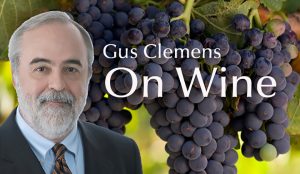Biodynamic viticulture takes organic vineyard farming to a whole new existential level.

Organic farmers envision the entire vineyard as a living thing and respect all the natural elements in the vineyard. Biodynamic viticulture is an integrated, holistic approach that sees the vineyard as part of the entire cosmos.
In the vision of early 20th century Austrian polymath Rudolf Steiner, biodynamics regards a vineyard as part of a complex biological system that involves elemental life forces that influence plant growth, encourages homeostasis, and sustains the health of the vineyard as a whole. Vines, soil, living organism, rocks, water connect to the entirety of creation, the entire universe. Really, really, really big picture.
Biodynamic farmers time their applications of various composts and other treatments according to planetary positions and phases of the moon. They use the vineyard’s raw materials to nourish the vineyard, life-affirming preparations to sustain it, and spiritual forces to nurture it.
The “bio” part of the effort is similar to organic farming practices. The “dynamic” part is where it gets weird. It includes strict rules on making a spray from manure fermented in cow horns buried in the ground and a compost made from yarrow blossoms fermented in deer bladders hung in trees, plus a compost made of stinging nettles. Decisions about farming are based on astrology.
Well all righty then, many non-biodynamic farmers say. It is an understandably skeptical reaction, except objective tasting and testing of wineries that buy into seemingly voodoo vineyard practices consistently deliver wines more complex, compelling, and individual than they produced before. That may be because of greater attention to care and detail required by biodynamic farming, but who knows? There are more things in heaven and Earth, Horatio, than are dreamt of in your science. Especially when it comes to wine.
Tasting notes (brands that employ biodynamic practices):
• Bonny Doon—Santa Crus Mountains, CA
• Cristal Champagne—Louis Roederer Champagne, France
• Bonterra Vineyards—Fetzer Winery, Mendocino County, CA
• Benzinger Family Winery—Sonoma, CA
• Nicolas Joly—Loire Valley, France, one of the earliest converts (1980).
• Michel Chapoutier—Rhône Valley, France
• Domaine Zind-Humbrecht—Aromatic whites from Alsace, France
Last round: No one ever came up with a great idea after a second bottle of water. On the other hand…
